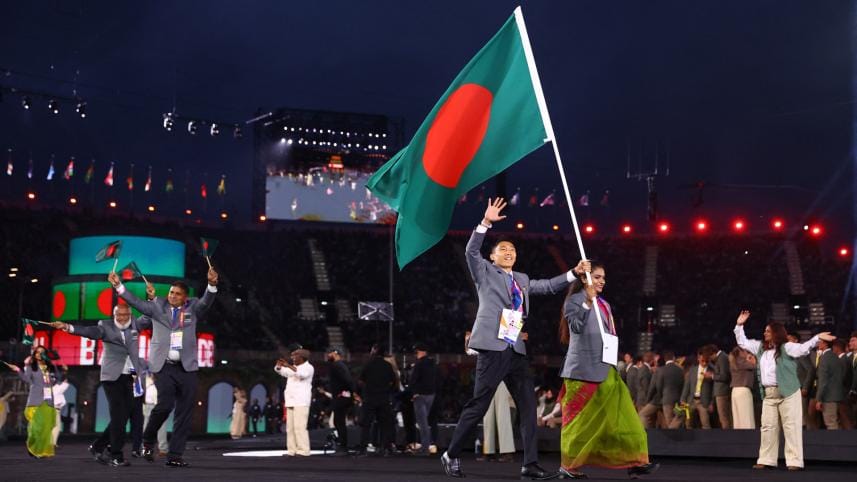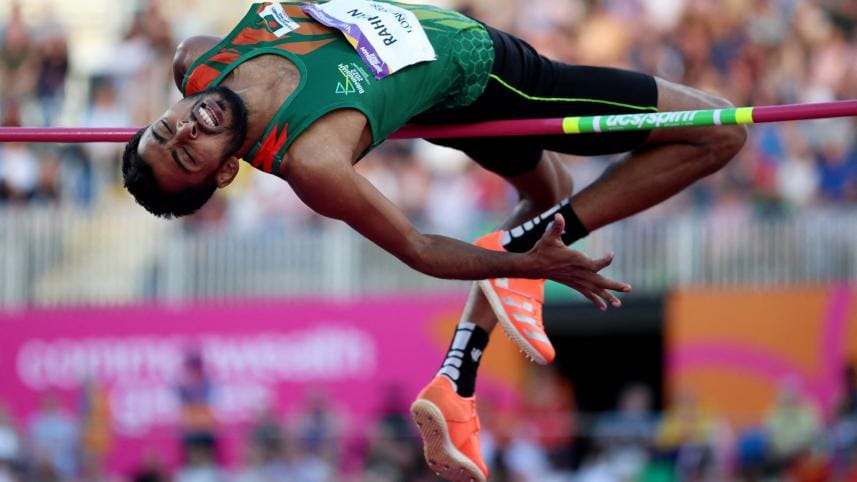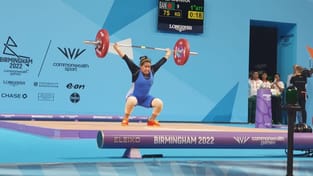Without goals or vision, Commonwealth Games rut continues

Bangladesh have just concluded another campaign in the Commonwealth Games but the athletes hardly drew any attention from the country's sports fraternity after again failing to perform on a big platform.
Barring the regional South Asian Games, Bangladesh's participation in international multi-sports extravaganzas like the Olympic Games, Asian Games and Commonwealth Games is often more akin to a pleasurable excursion or experience-gathering mission as the concerned authorities dispatch large contingents without setting any goals which only leads to token participation.
Shooting is the only discipline that Bangladesh have found success in when it comes to the Commonwealth Games, with all the country's eight medals -- two gold, four silver and two bronze -- coming from shooting events between 1990 and 2018.

But shooting was not part of the 2022 Birmingham Commonwealth Games and the performances from the 30 athletes across seven disciplines were really woeful, reminding of those notions of field trips. Only the table tennis team, which advanced to the men's team quarterfinals for the first time, achieved something of note.
Bangladesh fist participated in an international multi-sports extravaganza in the 1978 Asian Games before joining the Olympic Games in 1984 and the South Asian Federation (SAF) Games, now known as the SA Games, the same year.
The country was first represented at the 1990 Commonwealth Games when a nine-member delegation featuring shooters, swimmers and track and field athletes pulled off a surprise by winning one gold and a bronze medal in shooting events.

Although Bangladesh have only found success in shooting, the Bangladesh Olympic Association (BOA) has continued to add new disciplines and increase the number of athletes, which has led to more disappointment.
The BOA was once quite calculative about choosing disciplines and athletes for Games, but it broke tradition by sending 36 athletes from seven disciplines to the 19th Commonwealth Games in India in 2010. As usual, only shooting could bring home a medal, netting one bronze.
But despite failures in other disciplines, the BOA has continued to practice sending ever-growing contingents for the Games as well as increasing the number of disciplines. This time around they sent 30 athletes from seven disciplines despite knowing those athletes would be unable to shine in Birmingham.
In recent Games, athletes from disciplines other than shooting have hardly crossed the first hurdle, relegating them to watching from the gallery.
However, in the past sprinters like Shah Jalal, Shahanuddin Chowdhury and Milzar Hossain at least crossed the initial hurdles and moved into the quarterfinals of 100m, 200m and 400m events respectively while swimmers Niaz Ali and Shahjahan Ali Rony qualified for the semifinals for their respective events.
Including the 22nd Commonwealth Games in Birmingham, Bangladesh have participated in a total of 12 disciplines: athletics, shooting, swimming, weightlifting, wrestling, boxing, archery, squash, badminton, cycling, gymnastics and table tennis. They have been in contention in athletics, shooting and swimming on most occasions, eight of nine times followed by weightlifting (five times), wrestling (three times) and boxing (three times).
In contrast, neighbouring nations like India, Pakistan, Sri Lanka have sparkled at the Commonwealth Games. This time, India secured 22 gold, 16 silver and 23 bronze medals, the lion's share from wrestling, weightlifting and boxing while Pakistan won two golds in weightlifting and athletics. Sri Lanka won one silver and three bronze medals.


When asked why Bangladeshi athletes struggled in the Commonwealth Games, two-time South Asian Games gold medallist Mabia Aktar Simanta said: "We, the players, coaches and federation are not failures. Those who are related to shaping sports policy are responsible."
"My federation, which is financially insolvent, sent me to 18 tournaments so I could qualify for the Olympics. But what did the policy-makers do for me?" Mabia questioned. "Athletes from India, Pakistan and Sri Lanka are prepared for 15 to 17 years, but we participate on the back of a few months of preparation. How can we then win medals?"
The star weightlifter added: "India don't emphasise 50 disciplines, they concentrate on a few and get success. Mirabai Chanu trains under four coaches and gets improved training facilities. At the same time, Pakistani weightlifter Dastagir Butt has been groomed for a long time and previously won bronze and silver medals before finally hitting gold in Birmingham."
Boxer Sura Krishna Chakma, who could not take to the ring at the Commonwealth Games due to poor health on competition day, suggested adopting India's recipe for international success.
"We don't need to go far to win international medals. Just watch what the Indian players are doing. If we can't make this small of a change then it is not possible to win medals in any big Games," Sura Krishna wrote on a Facebook post.
BOA treasurer AK Sarker informed that they initially started training for athletes keeping four Games, including the suspended Asian Games and deferred SA Games in mind, and had sent the athletes to the Commonwealth Games to see where they stood.
"We have a lot of problems in terms of sports development. You can't expect results on the basis of a short term-training camp under the BOA," the basketball organiser said. "The state has to come in and remove obstacles to forge a way out for sports development. Sports are now Dhaka-based, but the capital also does not have much infrastructure in terms of training facilities while the coaching profession is also not at the stage where it can help the development of athletes."
He added: "If India, Pakistan and Sri Lanka can succeed at the international level, why can't Bangladesh? If we adopt a long-term plan directly patronised by the government, we can get success within 8-10 years."




 For all latest news, follow The Daily Star's Google News channel.
For all latest news, follow The Daily Star's Google News channel.
Comments